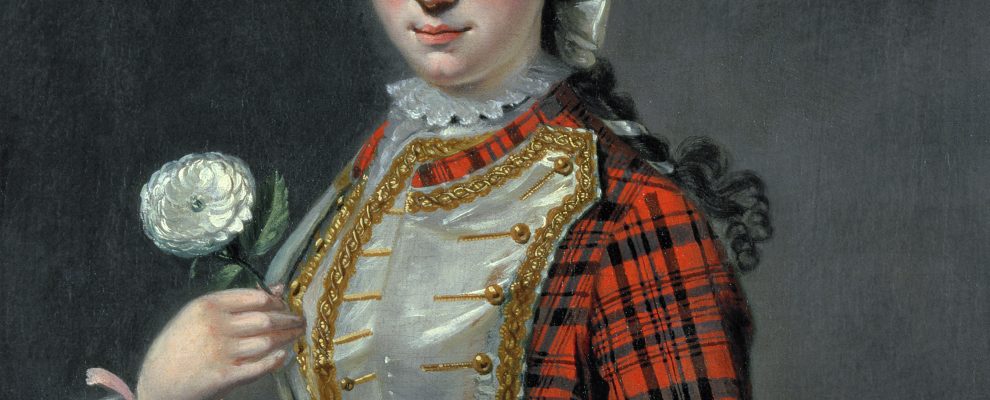The arena within which eighteenth-century women could be politically active was very restricted. While women could not vote or hold office, they were not legally excluded from all forms of political activity: discreet political campaigning by women was acceptable, for example, in support of male relations involved in politics. Women who stepped beyond the bounds of propriety in pursuing political causes, however, faced strong social disapproval.
Against this background it is notable that the Jacobite cause attracted considerable active female support. Some opponents and critics of Jacobitism went so far as to claim that Bonnie Prince Charlie was under ‘petticoat patronage’, suggesting that the motives of female Jacobites were essentially frivolous or morally dubious, being related to the personal charms of the Young Pretender or a desire to experience the risqué thrill of rebellion. The widespread contemporary perception was that women were incapable of serious political thought, and thus that their supposed commitment to Jacobitism could not be taken seriously.
Female Jacobites were able to exploit these perceptions. Jacobite sympathies could be conveyed through clothing and accessories, items associated with ‘feminine’ superficiality which could disguise serious political messages as fashionable fripperies. Women could also use their non-political status to escape detection as co-conspirators and supporters of military rebellion, actions which might have been too dangerous for their male relations. Precisely because female Jacobitism was not taken as seriously as its male equivalent, women often escaped execution for ‘treasonable’ acts. However, some female Jacobites suffered more than disapproval for overstepping the mark. The names of women Jacobites can be found on prison registers for York, Lancaster and Chester, while Flora MacDonald was imprisoned in the Tower of London for her role in assisting the Pretender’s escape. Women might be able to appear non-threatening, but they played important parts in supporting and sustaining rebellion, and sometimes paid a high price for doing so.

Source: In the Name of the Rose: The Jacobite Rebellions, Symbolism and Allegiance (Fairfax House, 2013)
